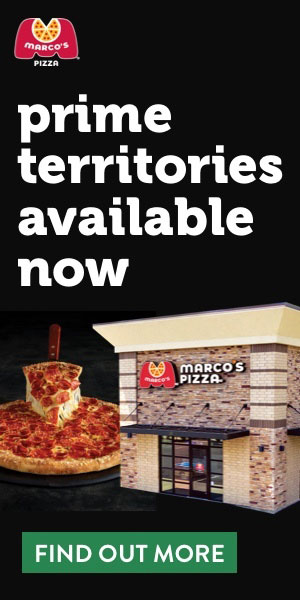Closing Failing Franchise Units: A Man with Four Hats
John Metz is a franchisor (Hurricane Grill & Wings), a franchisee (Denny's, Dairy Queen, assorted hotels), a landlord, and a renter/lessee--as well as having other several business interests. We asked him for his thoughts on closing units that are losing money, clearly failing, and whose chances of a turnaround are slim to none - from his four different perspectives.
- Franchisor. When he became a franchisor in December 2008, acquiring struggling brand Hurricane Grill & Wings, he brought a franchisee's sensibility to the role. "We picked up a lot of legacy stores and closed five or six," he says. "But we did it by evaluating the market and deciding it was not fair to the franchisees to let them continue." Despite his reservations about royalty relief, when there was a chance for a turnaround, he granted it in 6-month increments. "If we haven't seen any movement in volume or sales, we look at relocation. We're a big fan of relocation and will provide a system for a franchisee to relocate. It's a win-win for both of us. If a store has no future, we bite the bullet."
- Franchisee. When a unit is in dire straits, he says, "Some brands will give you royalty relief, which only solves the problem if you can turn it around." Although royalty relief allows a franchisor to put more resources into fixing operations, he says this approach also can "really prolong the agony." Denny's, he says, has been good to work with any time he has a unit he suspects is not going to viable. "One of the things I like about Denny's is that they're very reasonable about closing nonperforming stores," he says. "They recognize it's not in anybody's interest to keep it open. All of those losing stores take all your resources and energy, and it's a waste."
- Landlord. "The landlord could be your biggest obstacle in closing a store. Your lease may not permit you to close. A lot of people forget that." You have to be prepared to buy yourself out of the lease, he says. "You can get yourself in worse trouble if you close a store. As a landlord, I'm not particularly keen on having my properties closed," he says. "When I lease a property to a brand, a corporate store or a franchise, I don't want to see a dark store. We have a prohibition in our lease against dark stores."
- Lessee. "I put almost all my leases in single-purpose entities, so there are no assets." However, he says, "some landlords are much smarter than that and require some type of guarantee. If I have to give a guarantee--a dirty word--I typically do a 1-year rolling guarantee, or a 5-year that burns off to nothing. A lot of landlords want a 5-year guarantee." While he can go it alone, he uses a professional lease negotiator when he's on the renting side. "It's important to have someone really knowledgeable either in your company or to hire someone on the front end."
Published: February 6th, 2013
Share this Feature
Recommended Reading:
| ADVERTISE | SPONSORED CONTENT |
FRANCHISE TOPICS
- Multi-Unit Franchising
- Get Started in Franchising
- Franchise Growth
- Franchise Operations
- Open New Units
- Franchise Leadership
- Franchise Marketing
- Technology
- Franchise Law
- Franchise Awards
- Franchise Rankings
- Franchise Trends
- Franchise Development
- Featured Franchise Stories
| ADVERTISE | SPONSORED CONTENT |

Join leading legal experts and franchising professionals to navigate the complex legal and regulatory landscape, ensuring compliance and minimizing...
Join us for the premier event in franchising, bringing together franchisors, franchisees, and franchise suppliers to discuss industry trends, gain...







 The franchise listed above are not related to or endorsed by Franchise Update or Franchise Update Media Group. We are not engaged in, supporting, or endorsing any specific franchise, business opportunity, company or individual. No statement in this site is to be construed as a recommendation. We encourage prospective franchise buyers to perform extensive due diligence when considering a franchise opportunity.
The franchise listed above are not related to or endorsed by Franchise Update or Franchise Update Media Group. We are not engaged in, supporting, or endorsing any specific franchise, business opportunity, company or individual. No statement in this site is to be construed as a recommendation. We encourage prospective franchise buyers to perform extensive due diligence when considering a franchise opportunity.